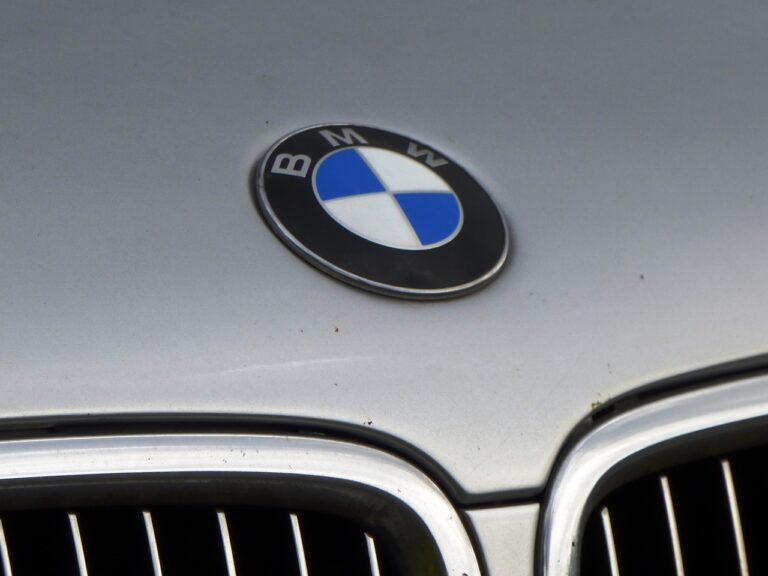Investigating the Potential of Blockchain Technology for Secure Vehicle Communication
11xplay new id, india 24 bat, skyinplay live login: Investigating the Potential of Blockchain Technology for Secure Vehicle Communication
Blockchain technology has gained significant attention in recent years due to its potential for revolutionizing various industries beyond cryptocurrency. One area where blockchain holds promise is in secure vehicle communication. As vehicles become increasingly connected and autonomous, ensuring secure communication between vehicles and infrastructure is crucial for safety and efficiency on the roads.
In this article, we will explore the potential of blockchain technology for secure vehicle communication, examine the challenges and opportunities it presents, and discuss how it can enhance the future of transportation systems.
What is blockchain technology?
Blockchain technology is a decentralized, distributed ledger that records transactions across a network of computers. Each transaction is timestamped, encrypted, and linked to the previous transaction, forming a chain of blocks. This chain cannot be altered or deleted, making the data immutable and secure.
How can blockchain enhance vehicle communication?
Vehicles generate vast amounts of data that need to be securely transmitted and stored for various purposes, such as traffic management, predictive maintenance, and autonomous driving. Blockchain technology can provide a secure and transparent platform for storing and sharing this data, enabling vehicles to communicate with each other and with infrastructure in a trusted and efficient manner.
What are the benefits of using blockchain for vehicle communication?
1. Enhanced security: Blockchain technology uses cryptographic algorithms to secure data and prevent unauthorized access. This ensures that sensitive information, such as location data and vehicle credentials, remains confidential and tamper-proof.
2. Immunity to fraud: Blockchain’s decentralized nature eliminates the need for intermediaries, reducing the risk of fraud and manipulation. Each transaction is verified by multiple nodes on the network, making it virtually impossible to alter the data without consensus.
3. Improved data integrity: The transparency and immutability of blockchain ensure that data integrity is maintained throughout the communication process. This enables trust between vehicles and infrastructure, leading to more reliable and accurate decision-making.
4. Efficient data sharing: Blockchain enables real-time, peer-to-peer communication between vehicles and infrastructure, eliminating the need for centralized servers and reducing latency. This enables faster data transmission and response times, improving overall system efficiency.
Challenges and opportunities
While blockchain technology offers significant benefits for secure vehicle communication, there are also challenges that need to be addressed. Scalability, interoperability, regulatory compliance, and energy consumption are some of the key issues that need to be resolved to fully realize the potential of blockchain in the automotive industry.
However, there are also opportunities for innovation and collaboration in this space. Companies and researchers are actively exploring new use cases for blockchain in vehicle communication, such as vehicle-to-grid integration, decentralized traffic management, and secure over-the-air updates.
The future of transportation systems
As vehicles become more connected and autonomous, the need for secure and reliable communication systems becomes paramount. Blockchain technology has the potential to transform the way vehicles interact with each other and with infrastructure, creating a seamless and efficient transportation ecosystem.
By leveraging blockchain for secure vehicle communication, we can improve road safety, reduce congestion, and enhance the overall driving experience. As more companies and organizations embrace blockchain technology, we can expect to see exciting innovations in the automotive industry that will shape the future of transportation systems.
In conclusion, blockchain technology holds great promise for secure vehicle communication, offering enhanced security, fraud immunity, data integrity, and efficient data sharing. While there are challenges to overcome, the opportunities for innovation and collaboration are vast. By investing in blockchain technology for vehicle communication, we can create a safer, smarter, and more sustainable transportation system for the future.
FAQs
1. What is blockchain technology?
Blockchain technology is a decentralized, distributed ledger that records transactions across a network of computers. Each transaction is timestamped, encrypted, and linked to the previous transaction, forming a chain of blocks.
2. How can blockchain enhance vehicle communication?
Blockchain technology can provide a secure and transparent platform for storing and sharing vehicle data, enabling secure communication between vehicles and infrastructure.
3. What are the benefits of using blockchain for vehicle communication?
The benefits of using blockchain for vehicle communication include enhanced security, fraud immunity, data integrity, and efficient data sharing.
4. What are the challenges of using blockchain for vehicle communication?
Challenges such as scalability, interoperability, regulatory compliance, and energy consumption need to be addressed to fully realize the potential of blockchain in the automotive industry.







